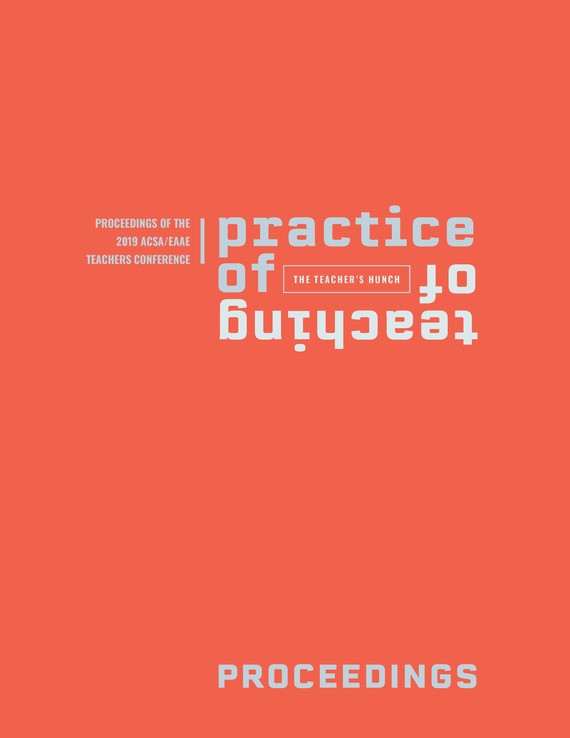Author(s): Jonathan Rule
The bridge between two apparently opposite poles, the academy and the profession, isn’t a relationship where one underpins the other. Instead it should be seen as a continuum that establishes a system of checks and balances where in order to thrive, one needs the other. In his book ‘New Essentialism / Material Architecture’ Borden discuss-es this relationship between the ‘practice of architecture’ and the ‘practice of teaching’. “Leading practitioners and design thinkers are associated with academic institutions. This connection to teaching represents a critical bridge that endows the academy with an experimental and investigative validity while providing the ever renewing energy, experimentation, and inquiry that feeds and validates a professional office.” The association between these two poles produce a symbiosis with one learning from and teaching the other. The academy is validated through the accountability of the profession, while at the same time, the profession is nourished through the curious and investigative environment that only the academy can provide. On the one hand, professional practice is primarily seen as a service-based profession that wrestles with the pressures of societal demands that influence its outcomes whether they be in the form of research or a product/commodity. Practice is the point of translation of ideation to reality, a process dominated by pragmatics and constraints. This process, in some respects, is the validation of disciplinary experimentation and speculation that can be undertaken in both the profession or academy. The academy, on the other hand has the option of freeing itself of societal demands and pragmatic constraints, and serves as the guardian of the disciplinary calling which separates architecture from building. The design studio is a place where knowledge in generated in a diverse, equitable and inclusive manner. However, this freedom can be seen in two ways. Some view the work produced in an academic environment lacking rigor and not grounded in reality. This view leads to a questioning of its validity and the beneficial implications that it might have for the betterment of the profession and society at large. However, without this freedom and ability to speculate severely limits the possibilities for innovation in the field.
https://doi.org/10.35483/ACSA.Teach.2019.46
Volume Editors
Richard Blythe & Johan De Walsche
ISBN
978-1-944214-23-4

 Study Architecture
Study Architecture  ProPEL
ProPEL 
